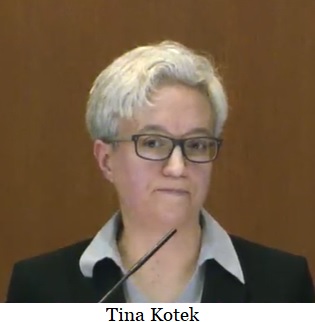Oregonians may be getting weary of policies leading to a dead end
Governor Tina Kotek joined the states of Arizona, Colorado, Illinois, New York, and Washington raising concerns and taking action to mitigate potential economic consequences of President Trump’s tariff process to grow the economy. Kotek claims the tariffs disrupt essential supply networks across vital sectors of the Oregon economy, such as medical supply chains, food processing, construction, and all facets of Oregon’s manufacturing base.
The Governor issued a directive to state agencies including the Oregon Business Development Department (OBDD), the Oregon Employment Department (OED), the Oregon Department of Agriculture (ODA), and the Department of Emergency Management (OEM) to provide an analysis within 90 days that provides a comprehensive picture of how tariffs are and will continue to impact the state.
Kotek held a Business Leader Roundtable in the spring to hear directly from Oregon-based businesses impacted by the tariffs. She also launched a survey with Business Oregon to get additional information about the impact on businesses. That occurred when President Trump first issued Executive Order 14257 outlining modifications to the tariff policy, before consequences of implementation could be realized. Oregon still has not experienced the disruption in the food chain as she had warned.
The strategy for Oregon to benefit from converting federal taxation to tariff seems to be lacking. Kotek wants Oregonians to think President Trump is creating chaos that will affect the food supply. Governor Kotek stated: “I don’t like surprises, especially when it comes to Oregonians’ pocketbooks for things like groceries, school supplies, or even medications. We need a full picture of where we anticipate the pain points are for Oregon’s economy."
Perhaps the Governor didn't read President Trump's July 7, 2025, extension to
Executive Order 14257 to continue the modifications on tariffs. These modifications includes goods for consumption.
Sec. 2. Tariff Modifications. The Harmonized Tariff Schedule of the United States (HTSUS) shall be modified, effective with respect to goods entered for consumption, or withdrawn from warehouse for consumption, on or after 12:01 a.m. eastern daylight time on July 9, 2025, by suspending headings 9903.01.43 through 9903.01.62 and 9903.01.64 through 9903.01.76, and subdivisions (v)(xiii)(1)-(9) and (11)-(57) of U.S. note 2 to subchapter III of chapter 99 of the HTSUS, until 12:01 a.m. eastern daylight time on August 1, 2025.
What Kotek is demanding of the Federal Government is something she hasn't been able to do as governor. Tariffs aren't the reason for the $15 billion tax bill to fund ODOT. While the federal policy is to eliminate federal taxes to reduce the burden of taxpayers, Kotek is headed for a special session to push some or all of the $15 billion increase in taxes onto Oregonians, affecting every form of transportation raising costs on everything.
Kotek doesn't walk her talk: “People should be able to get what they need from the store at prices they can afford. And businesses need predictable conditions to succeed. When I heard from businesses earlier this year, there was anxiety, uncertainty, and an information vacuum from the federal government. While the Trump Administration has failed to fill in the gaps, there are actions we can do right here in Oregon to be better prepared. That’s why I am exercising my authority to direct relevant state agencies to analyze everything from supply chain impact in the agricultural sector to employment trends across industries.”
The Governor’s directive is as follows:
The Oregon Business Development Department, in collaboration with the Oregon Employment Department, shall consider and report on the following:
- Employment trends observed since tariff implementation.
- Industries and economic development regions that are most notably affected by trade-related changes.
- Key challenges reported by Oregon businesses related to the new trade environment and tariff policy.
The Oregon Department of Agriculture shall consider and report on the following:
- Agricultural supply chain disruptions and industry adaptations observed since U.S. tariff implementation.
- Food cost trends and impacts on Oregon consumers.
- Export challenges facing Oregon agricultural sectors.
The Oregon Department of Emergency Management shall consider and report on the following:
- Overview of emergency response supply challenges resulting from the new trade environment and tariff policy, including categories of emergency supplies affected by procurement or cost challenges and any notable stockpile or equipment concerns.
- Summary of emergency procurement adjustments resulting from the new trade environment and tariff policy, including changes to sourcing strategies for critical supplies and approaches to maintaining preparedness, within budget constraints.
- Following receipt of the above information, observations, and consideration, the Oregon Department of Administrative Services shall prepare and publicly produce a report describing the impact of the Trump Administration’s U.S. Tariff Policy on the State of Oregon based on the information reported.
A D V E R T I S E M E N T

A D V E R T I S E M E N T
Where appropriate, the aforementioned agencies shall coordinate with private sector partners, including but not limited to the businesses community, industry associations, labor unions, academic institutions, and other relevant organizations, to gather qualitative and quantitative data regarding the impact of the Trump Administration’s U.S. Tariff Policy on the State of Oregon.
Oregonians should be asking how will the state benefit in the long run if the state doesn't develop policies to sync with the conversion to tariffs? How can Kotek ever take credit when the bumpy road of change smooths into an explosion in the economy? How will she keep Oregonians bound in her taxation schemes without waking up Sleeping Beauty?
--Donna Bleiler| Post Date: 2025-07-20 10:42:09 | Last Update: 2025-07-19 19:01:03 |







